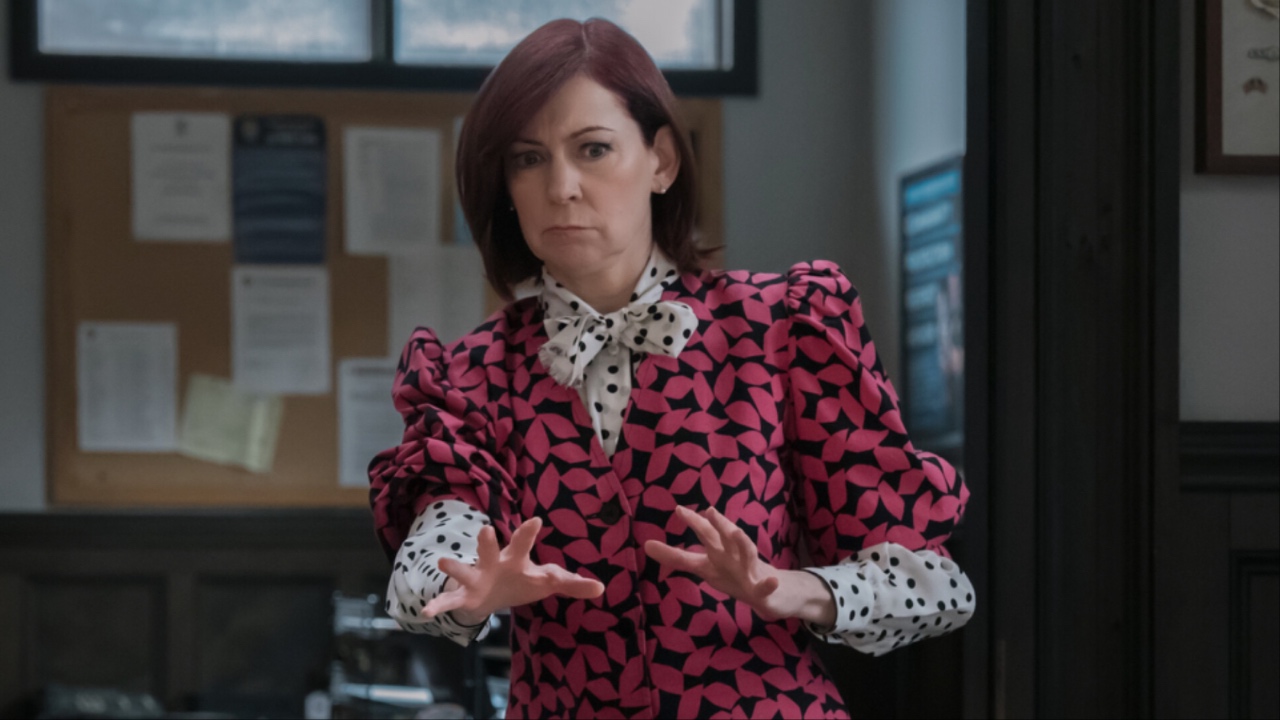There’s a certain patience about Monsters that plays very well amidst a story about war photography and the tediousness of well-organized escape. Most films with the same subject material would have lingered on the title Monsters, perhaps created an aura of hysteria to surround the two leads and their break for America, but first time director Gareth Edwards proves himself mostly better than that. Making a run for it is natural and easy, but coordinating legitimate travel during a time of crisis is arduous and painstaking. Aliens may be destroying the upper regions of Mexico, but in this moment, that’s less important than wondering why the strange men leading you to freedom have pulled out their guns. Monsters succeeds when it remembers that, in quiet scenes of brief solitude and disheveled glances of nervous energy, but when it forgets, when Monsters stops thinking locally and lets it characters make comments on the larger meaning, it loses that patience. With it, Monsters is an original infestation flick about escaping; without it, it’s is just another run of the mill flick about escaping from aliens. I liked the first one better.
Andrew (Scoot McNairy) is a war photographer. He’s on assignment in Mexico covering a six year old alien outbreak. Part of the country has been quarantined, the other part is settling in to a life of angels and air raids. It’s the type of place where a bus emblazoned with the Savior’s face could speed past airplane wreckage without causing a second glance. Andrew makes his living on the chaos, but Samantha (Whitney Able) is shaken and rattled. The daughter of the media mogul that pays Andrew to run his photographs, Samantha was slightly wounded in a hotel bombing, and her father has asked, through intermediaries, for Andrew to bring her home. He reluctantly accepts, and the two head for the coast.
As American citizens, Samantha and Andrew have the luxury of returning to the States via ferry, but getting there first requires the pair travel by hitchhike, bus and train. It’s exacerbating to watch, but more importantly, it feels real. Yes, one of the modes of transportation breaks down, and footage of the aliens is ever-present on background televisions, but there’s something simple and human about the way the pair interact and respond to setbacks. She’s cold, but only because she normally holds her cards close to the vest. He’s agitated, but only because he’s can’t embrace the chaos with her around.
The time it takes to trust someone is inversely proportional to an immediate situation’s desperation. Early in the film, when the characters confront a split-second decision, Samantha follows Andrew even though she clearly yet silently disagrees. Later, after a lazy evening of tequila and corn on the cob, she gently rebukes his advances. It takes confidence to show that much restraint, to use details and facial mannerisms to tell a story. Most films don’t have it. Monsters does, which is why the third act is so demoralizing.
Audiences want a big finish. They want the why’s of it all explained, but as the whisper scene in Lost In Translation shows, sometimes it’s better to leave things unsaid. For most of its runtime, Monsters lets its characters worry about the now. It lets Samantha blow off her fiancé without provocation. It lets David explain the details of a traumatic fatherhood situation without asking him how it makes him feel. It lets us accept these characters, baggage and all, without apologizing or manufacturing significance. Then Monsters stops long enough to ask itself what it all means. First, in the form of long-winded asides about returning to America and forgetting the Mexican plight. Later, in lingering shots of alien interactions. Finally, in a conclusion every bit as forced and generic as the first two acts are original and thought-provoking.
Monsters is almost there. It has all the patience and honesty of a very good film, but when it came time to truly trust its muted vision, it cowered and became something less. All the great films transcend their genre. Monsters briefly gets close, but as is, it will simply go down as a solid movie about escaping from aliens. I still would have liked the first one better.
Mack Rawden is the Editor-In-Chief of CinemaBlend. He first started working at the publication as a writer back in 2007 and has held various jobs at the site in the time since including Managing Editor, Pop Culture Editor and Staff Writer. He now splits his time between working on CinemaBlend’s user experience, helping to plan the site’s editorial direction and writing passionate articles about niche entertainment topics he’s into. He graduated from Indiana University with a degree in English (go Hoosiers!) and has been interviewed and quoted in a variety of publications including Digiday. Enthusiastic about Clue, case-of-the-week mysteries, a great wrestling promo and cookies at Disney World. Less enthusiastic about the pricing structure of cable, loud noises and Tuesdays.

